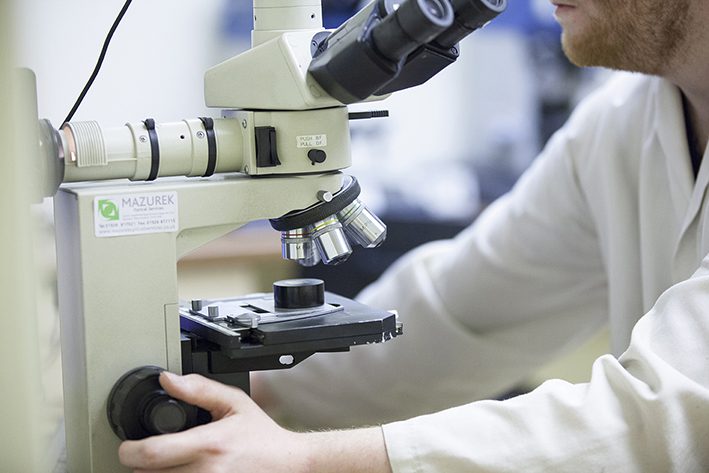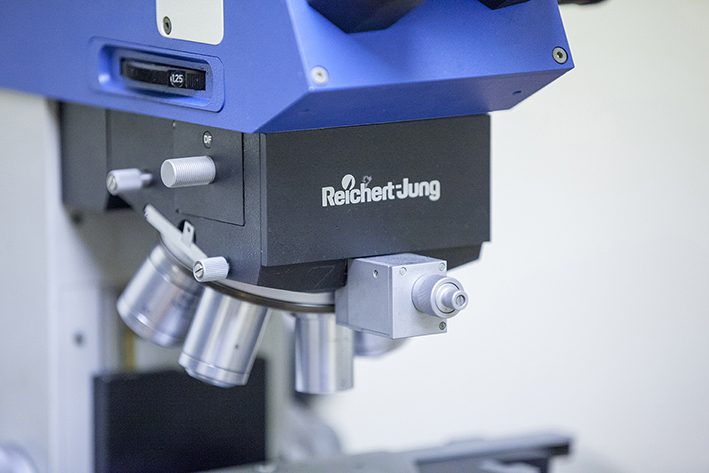
Reduce risk and maintain compliance with our specialist risk management services.
We’re proud to be a leading provider of complete life cycle risk management solutions. From ensuring asset safety and legal compliance with our thorough engineering inspections to driving operational efficiency with our specialist non-destructive testing services, (and much more in between), we’re proud of the long-lasting partnerships we have formed with our customers over the last 160 years, based on the value of our solutions.

Metallography & Metal Testing
At BES Group, we carry out a wide range of metallography and metal testing services to help you understand the microstructure of your material, including the arrangement of grains, phases, inclusions, and other features and characteristics.
Metallography is the study of the structure and composition of metals and alloys. These types of tests are used to evaluate the microscopic features of metal samples, such as their chemical properties, mechanical and physical behaviours, and microstructure.
The information gathered through metallography is extremely valuable for understanding how metals will react under different conditions, and helps with quality control processes, material research, and product development.
Metallography also helps to analyse the effectiveness of heat treatments applied to metals, through processes such as annealing, quenching, and tempering, but examining changes in grain size and phase transformations. This type of data can be useful to predict the mechanical and thermal performance of materials in different environments.
Metallographic examinations can increase the longevity of metals used in infrastructure or machinery by making sure the metals have the right strength, durability and corrosion resistance required for these harsh conditions.
Our team of metallurgists can carry out a comprehensive range of investigative tests, including:
- Microstructure evaluation, phase distribution, and defect assessments
- Inclusion content, grain size determinations
- Graphite type, size, distributions in cast irons
- Macro and micro examinations for the determination of heat treatment condition, case depth, and material cleanliness
- Decarburisation tests
- Ferrite counts, volume fraction, determinations by image analysis
- Corrosion testing
- Failure investigations, SEM/EDX analysis, and fracture analysis
Our Metallography Services
Cleanliness Testing
Corrosion Testing
Failure Investigations
Fracture Analysis
SEM & EDX Analysis
Weld Testing

All your destructive metals testing needs, under one roof.
We know how frustrating it can be to have to send samples to multiple labs for different testing methods. Not only is it expensive to machine and send multiple samples, but there is also a risk of inconsistent results if the labs have used samples from different heat-treated batches.
We’re here to take care of all your metals testing needs, under one roof.
With our full suite of tests, we conduct a thorough examination of your sample’s properties, structure, and behaviour. Our in-house workshop prepares the samples, which are then tested in our UKAS accredited laboratory. This ensures that your samples receive a comprehensive and professional service from start to finish, without the hassle of using multiple laboratories.
To ensure efficient tracking, each sample is given a unique barcode to book all your samples into our laboratory. This allows us to monitor each sample from the moment it arrives, throughout the testing process, until its completion.
We aim to complete our full suite of destructive tests within a 3-day turnaround, which includes:
- Full machining and preparation of samples
- Tensile, impact and hardness testing
- Chemical analysis
- Metallurgical examinations
- Corrosion analysis
- Optional services include Salt Spray testing, weld assessments and coating finish testing.










